Stonehenge tunnel: Highways England says plans are continuing
- Published
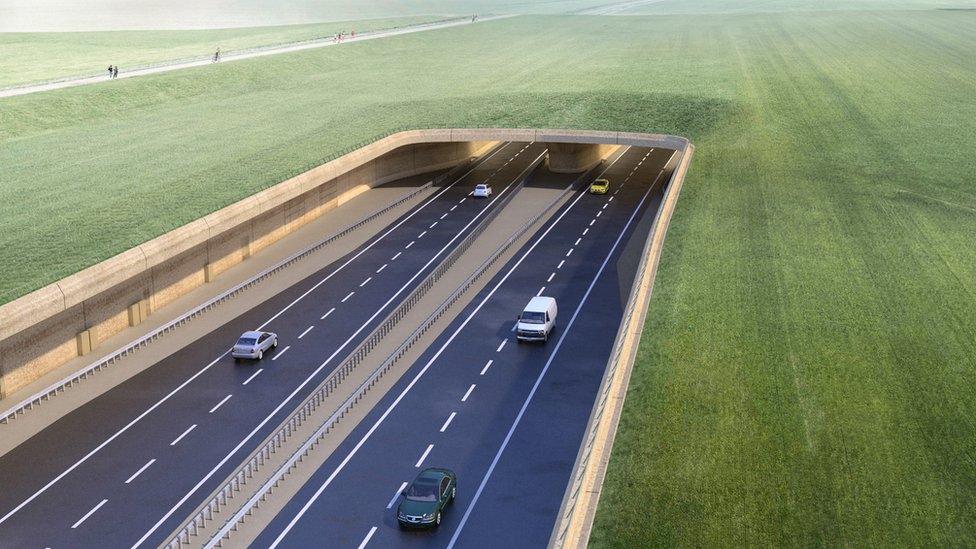
Work on the tunnel was expected to begin in 2023 and take five years to complete
A plan for a road tunnel near Stonehenge will continue Highways England has said, despite opponents winning a High Court battle last week.
The government-owned company said it would proceed with handing out construction contracts for the scheme.
The £1.7bn project aims to reduce traffic on the A303 and includes a two-mile (3.2km) tunnel near the monument.
Transport Secretary Grant Shapps approved the scheme last year, but a judge ruled that it was "unlawful".
Highways England is expected to announce who has won the contracts early next year, with three bids having been submitted.
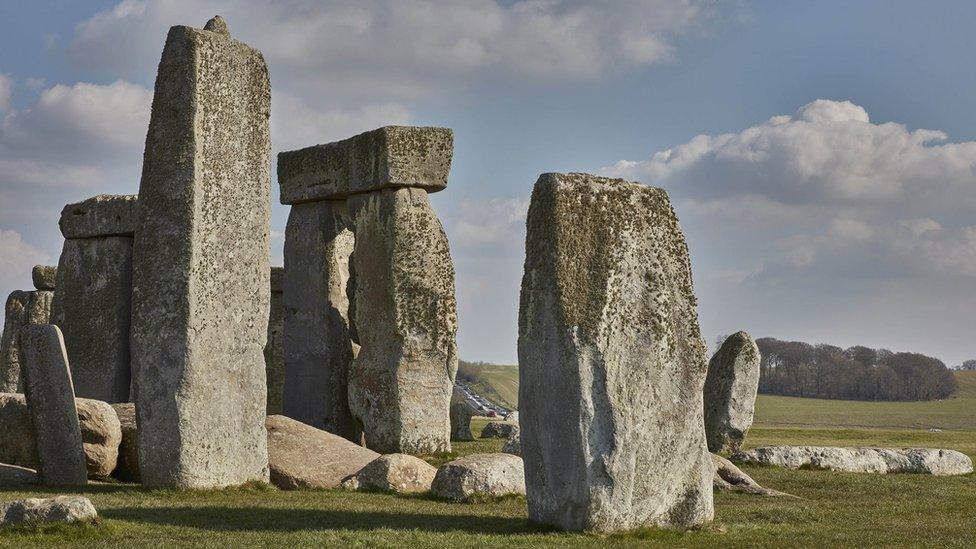
Highways England says the A303, which runs close to the monument, carries twice as much traffic as was first intended when it was built
A separate £60m contract is due to be awarded later this year for supporting the management of the construction work at the world heritage site.
However, preparatory work, including archaeological studies, which had been scheduled to begin this summer, have been postponed.
David Bullock, Highways England's project manager for the scheme, said that while they are waiting for the Department for Transport to consider its options, they would be continuing the process to appoint a contractor.
"We have now paused our plans to carry out early, preparatory work, but the procurement process is very much live to ensure we maintain programme timescales as best as possible," he said.
"We still believe our project is the best solution to the ongoing issues along the A303 past Stonehenge," he added.
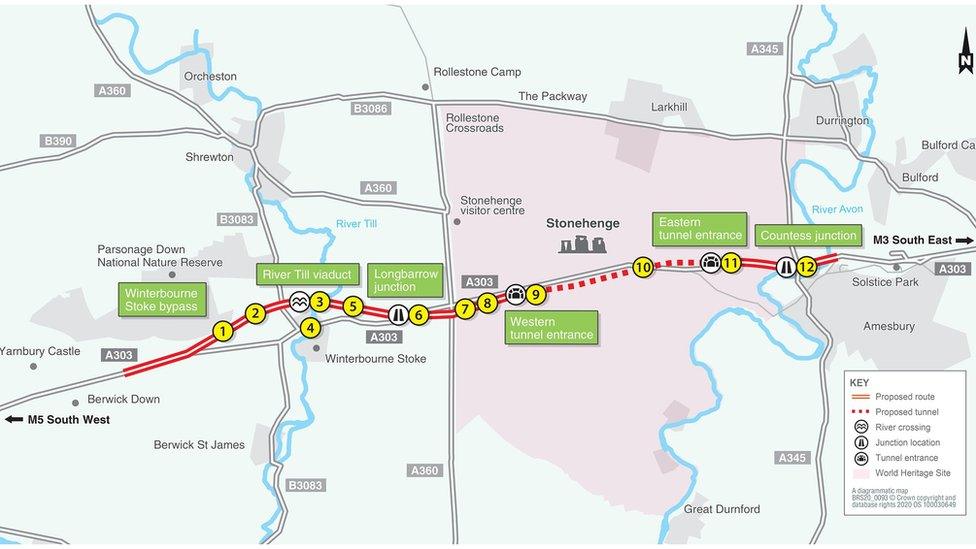
The project would overhaul an eight-mile (12.8km) stretch of the A303 and include a tunnel where it passes closest to Stonehenge
Campaigners opposed to the scheme took their fight to a judicial review, which resulted in Mr Justice Holgate's ruling on Friday that the decision had been "unlawful" on two grounds.
He found there was a "material error of law" in the government's decision-making process as there was no evidence of the impact on each individual asset at the site.
Mr Justice Holgate added that Mr Shapps had failed to consider alternative schemes, in accordance with the World Heritage Convention and common law.

Follow BBC West on Facebook, external, Twitter, external and Instagram, external. Send your story ideas to: bristol@bbc.co.uk , external
- Published30 July 2021
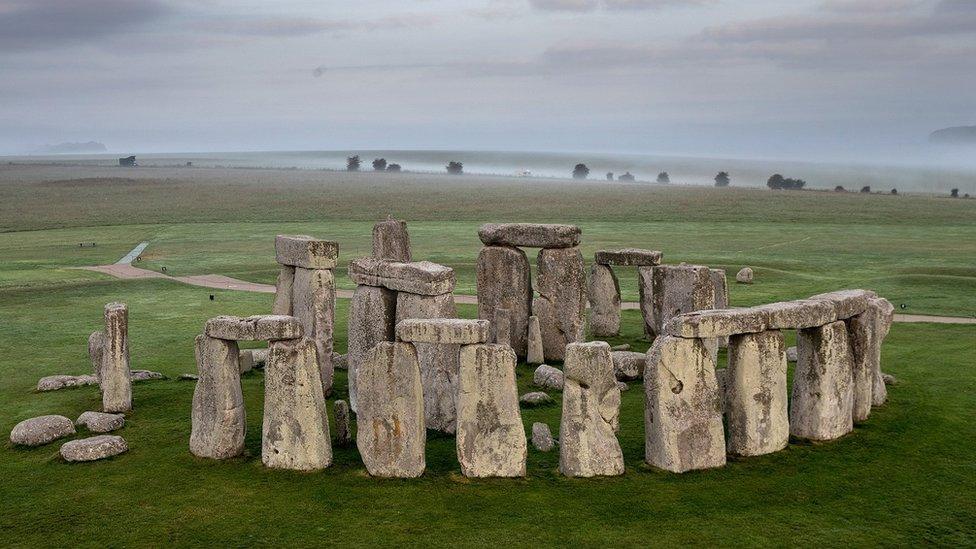
- Published24 June 2021

- Published23 June 2021
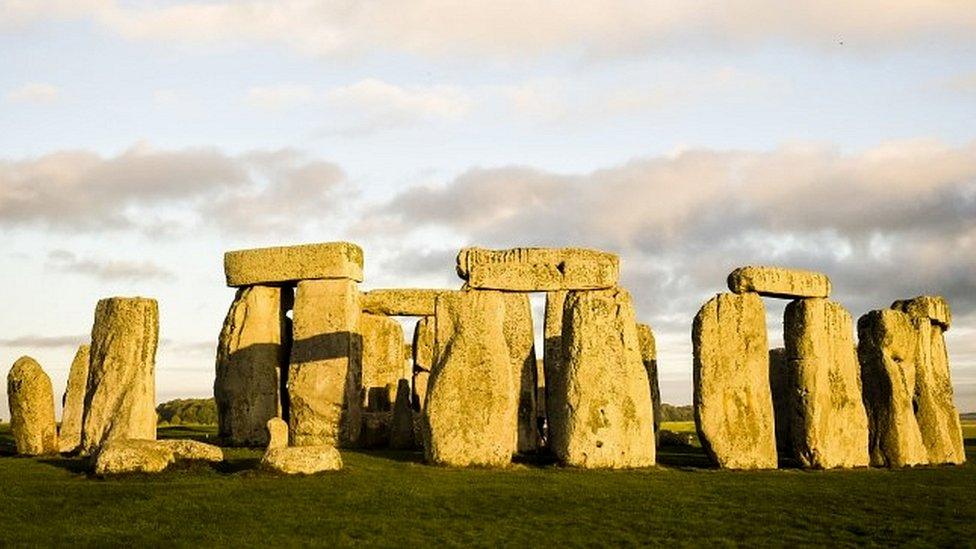
- Published17 February 2021

- Published6 January 2021

- Published31 December 2020

- Published30 November 2020

- Published13 November 2020
